Being quite good at climbing is still gaming's greatest superpower
Put away the cape and put on your climbing shoes.
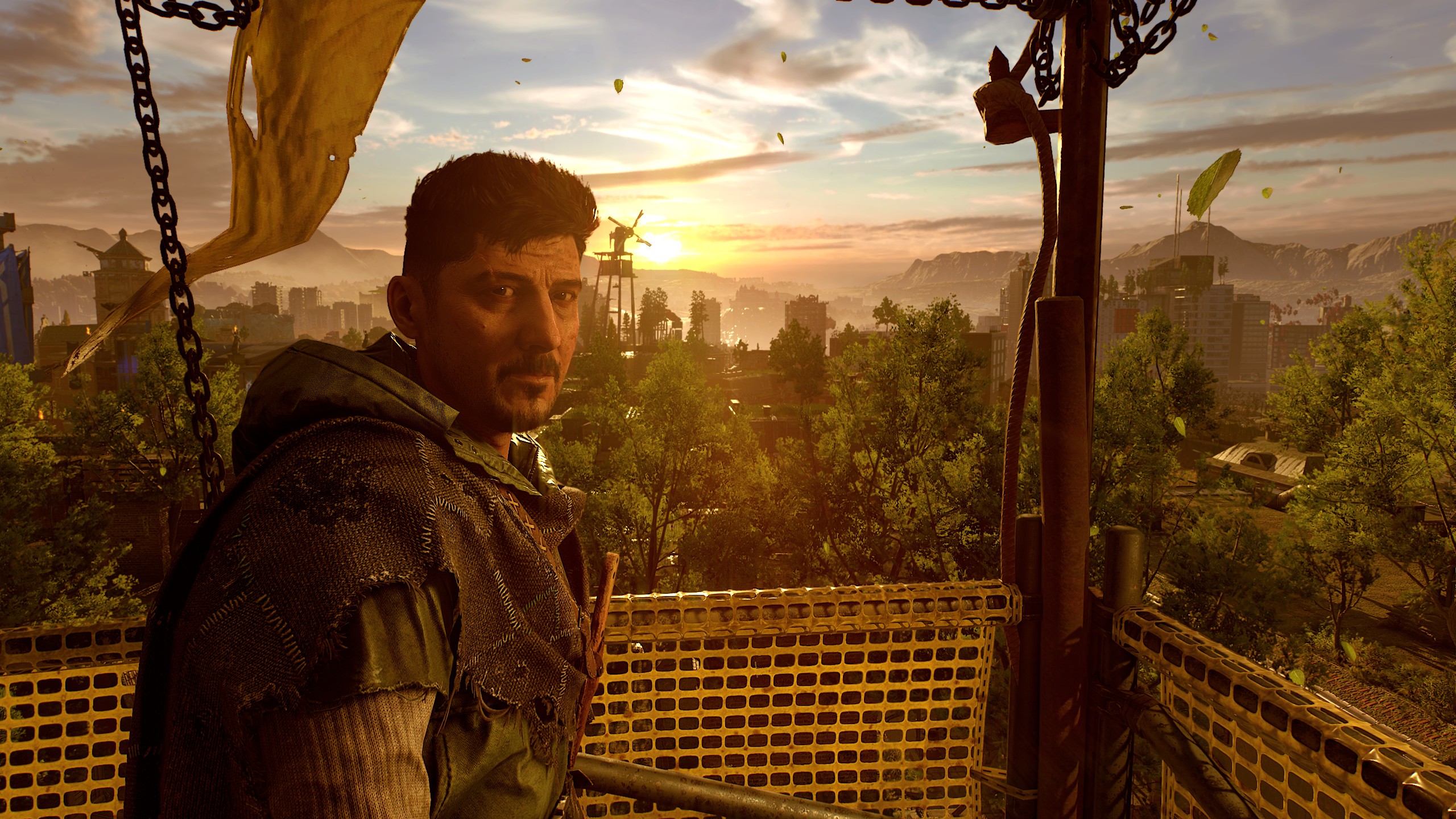
I've soared through the skies, blasted lasers out of my eyes and punched a planet so hard that it cracked, but the most satisfying superpower I've ever been given in a game is the ability to climb up some walls better than the average person.
Dying Light 2 is out this week, so clambering around digital landscapes is very much on my mind at the moment. But the first time I was impressed with my borrowed climbing skills was Tomb Raider—gripping to ledges, embedding my pickaxe into cliffs, trying desperately not to fall to my doom. And Lara's still climbing today, albeit in a fashion more inspired by the Uncharted series.
In the mid '90s, 3D games were still relatively novel, and Tomb Raider was like peering into the future, with absurdly striking 3D graphics and brilliant level design that fully took advantage of the best tech of the day and Lara's preternatural agility.
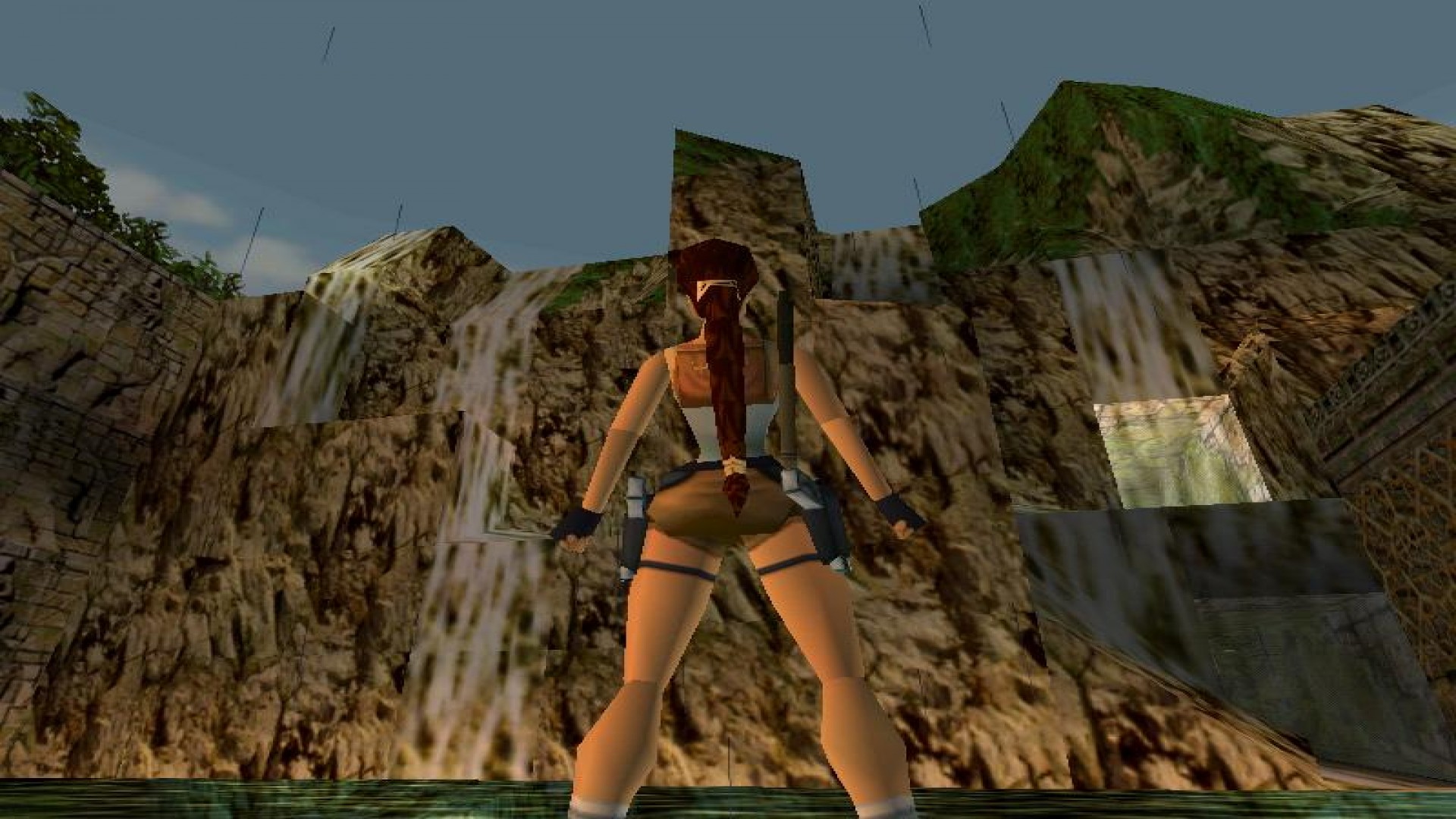
From there, heaving yourself up and jumping off walls became one of gaming's most enduring pastimes. The popularity of parkour in the early 2000s is undoubtedly responsible, though that's not to say Lara hasn't been influential. It's just that, for a few years, everyone was wild for that French export. It was everywhere: in movies, TV, games and probably on your roof. And while it soon went back to being something that the vast majority of people couldn't give two shits about, games continued their love affair with parkour.
For a few years, everyone was wild for that French export.
And videogame protagonists have only gotten better at it. While Assassin's Creed initially made you search for places to grab onto, the later assassins are able to climb nearly any surface with spider-like agility. In Odyssey, you can even unlock a skill that stops you from taking fall damage—the ultimate climbing fantasy.
If you were given the choice of a superpower, climbing probably wouldn't be your pick. But for games, it's perfect. You might think flying would be more fun, but after the novelty is over, all you've got is a big open space to move around in. Climbing works in tandem with level design, forcing you to think about how to best navigate a space. It's a practical tool, not just a power fantasy.
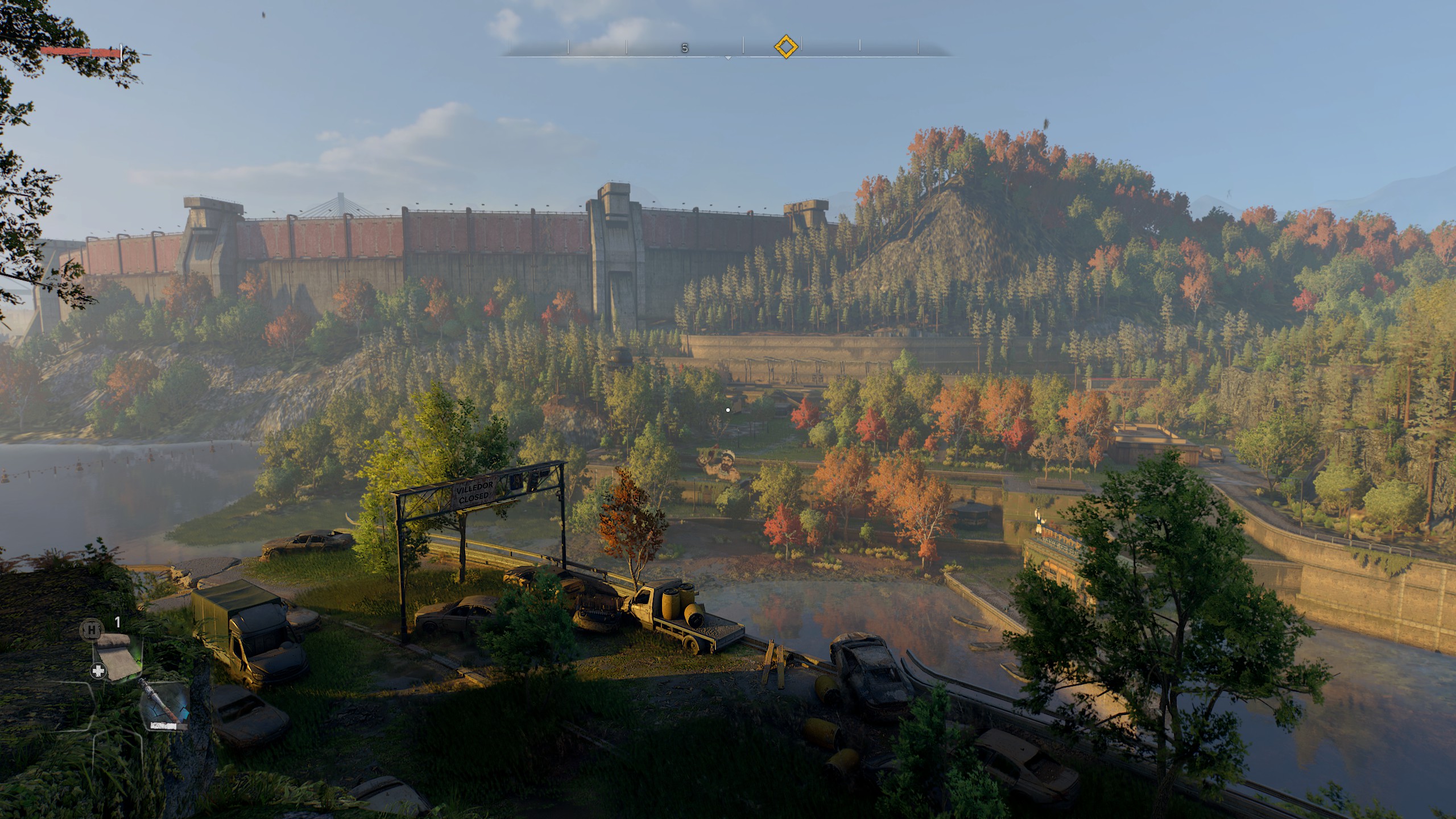
This was clear straight away in Tomb Raider, and games like Mirror's Edge really ran with it, using parkour as a tactile puzzle solution. Flying makes you ignore terrain and obstacles, but climbing makes you pay attention to them even more, figuring out how to surmount barriers both physical and natural. There are constant payoffs.
The biggest gaming news, reviews and hardware deals
Keep up to date with the most important stories and the best deals, as picked by the PC Gamer team.
Climbing requires effort, and that's really key. It doesn't feel quite as impressive to jet off into the sky or leap over multiple buildings in a single bound when you're doing it without breaking a sweat. At least not after the first dozen times. Superman is probably incredibly bored all the time. But in Dying Light 2, even with the conceit that you have some superhuman powers, climbing feels like a bit of work. There's the mental effort of plotting your route, but also the laboured breathing, the dwindling stamina metre, and the ravenous zombie horde nipping at your heels. You might have some weird zombie DNA making you stronger and faster, but when you're awkwardly climbing up a drainpipe, you feel very human.
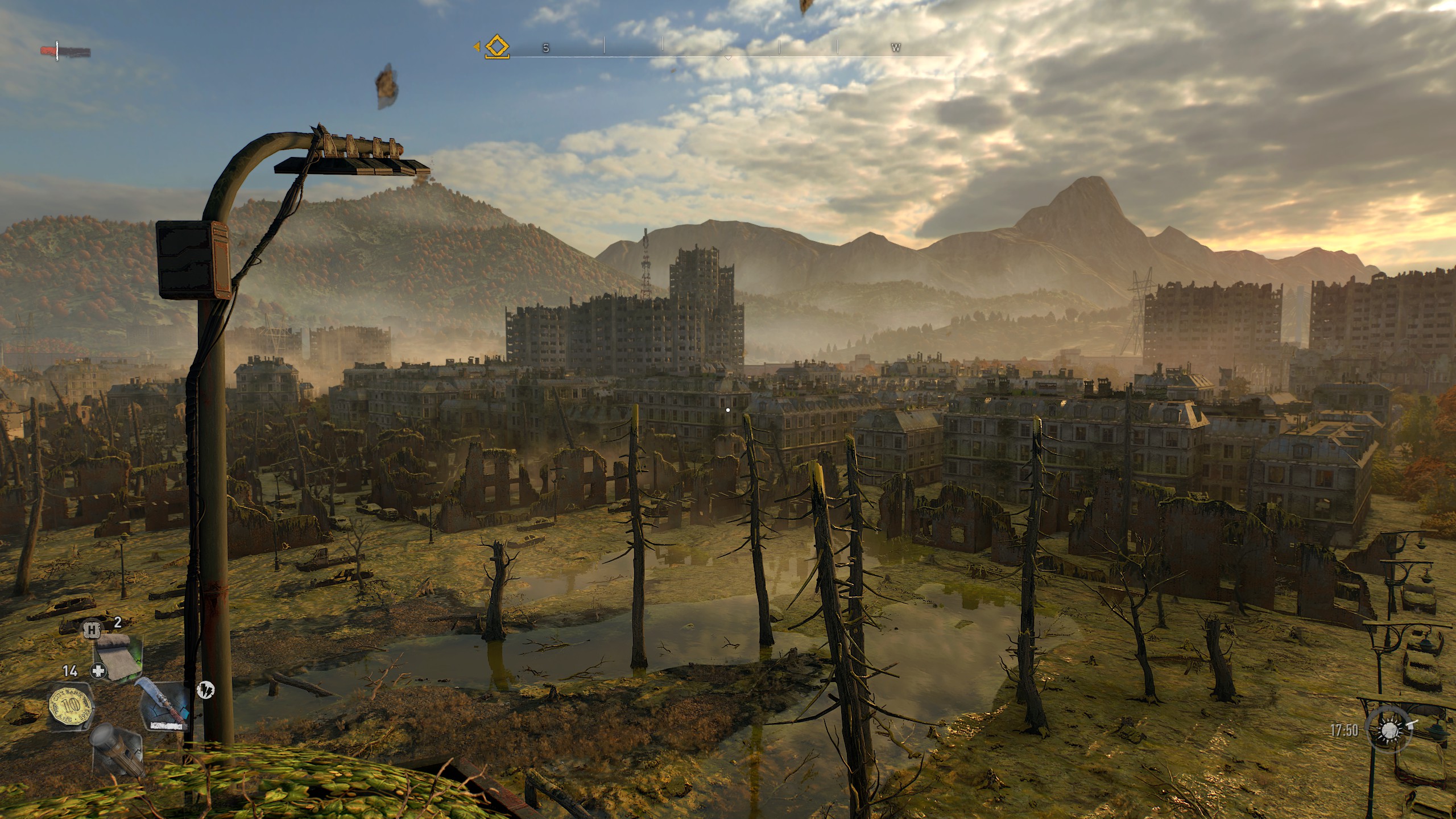
Weaknesses and vulnerabilities are critical for superpowers. Even Superman has kryptonite. They add tension and risk, making those moments where you manage to sneak up a building like Spider-Man and kick a bunch of bandits off the roof (which Spider-Man would never do) even more satisfying.
Even the simple act of climbing up a building to avoid some street-level enemies makes me feel like a genius.
Even though you're doing something a person can actually do (if that person is not a very lazy writer who must be bribed to get off his chair), climbing can still be exceptionally empowering. Even the simple act of climbing up a building to avoid some street-level enemies makes me feel like a genius. This is especially true in cities, then, and while I love Uncharted and the Assassin's Creeds that let you explore the countryside, I'm always a lot more excited to leap around urban landscapes.
There are more things to climb, of course, but there's also the opportunity to get a different perspective, to see the city from way up, creating a mental map full of opportunities to get from A to B more efficiently, and watching all the people scurrying around below, oblivious to your presence. Cities become playgrounds fully of dizzying potential.
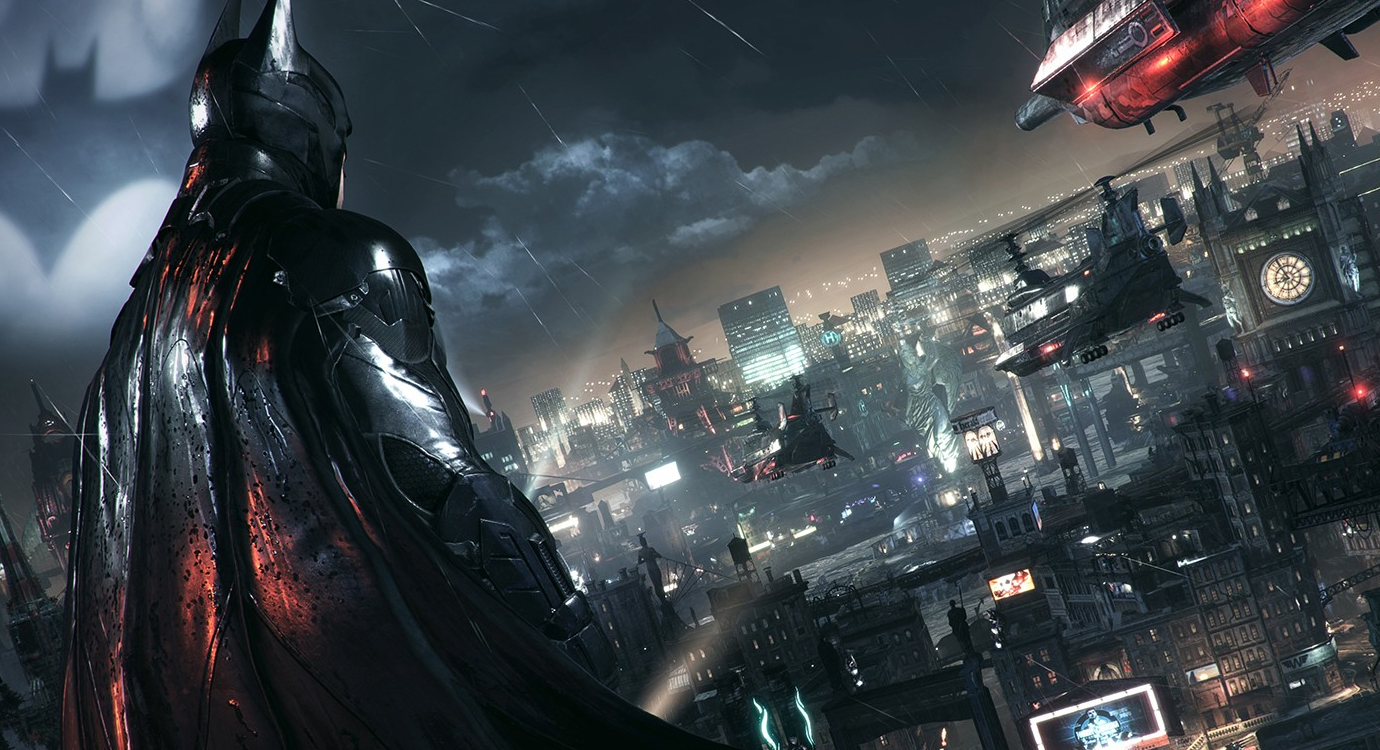
It's a natural fit for stealth—walking over threats feels almost like cheating, but still feels good. And that naturally leads to fun kills, as you jump off your perch and land on a clueless berk below. I've surprised a lot of zombies this way. There are plenty of opportunities for this in Assassin's Creed, too, but the master is undoubtedly Rocksteady's Arkham series. No other games make you feel quite like a crime-fighting predator like Batman's greatest outings. Roofs and rafters and ledges are your domain—a whole world that nobody else sees—and from that vantage point anything seems possible.
Ultimately, it's the freedom that's so appealing: to decide how you want to traverse the map, to pick any direction and just be able to go there, to not get eaten by the hungry undead. I still get tingles when I get to the top of a building. Dying Light 2 really needs an ability where you just put your hands on your hips, take a deep breath and adopt a smug, self-satisfied expression. The climber pose.

Fraser is the UK online editor and has actually met The Internet in person. With over a decade of experience, he's been around the block a few times, serving as a freelancer, news editor and prolific reviewer. Strategy games have been a 30-year-long obsession, from tiny RTSs to sprawling political sims, and he never turns down the chance to rave about Total War or Crusader Kings. He's also been known to set up shop in the latest MMO and likes to wind down with an endlessly deep, systemic RPG. These days, when he's not editing, he can usually be found writing features that are 1,000 words too long or talking about his dog.

